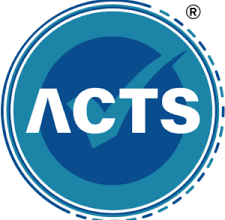Unlock potential in recruitment with aptitude assessments. Learn benefits, challenges, and future trends. Make informed hiring decisions.
In today’s competitive job market, finding the right talent for your organization can feel like searching for a needle in a haystack. Recruiters are tasked with the challenging mission of identifying individuals who not only possess the necessary skills and qualifications but also have the potential to excel and thrive within the company culture.
This is where aptitude assessments come into play. Aptitude assessments are powerful tools that provide invaluable insights into a candidate’s cognitive abilities, personality traits, and skillsets. They go beyond traditional resume screening and interviews, offering recruiters a deeper understanding of an individual’s potential to succeed in a specific role.
Understanding Aptitude Assessments
The aptitude assessment is a valuable tool that provides recruiters with deeper insights into candidates’ capabilities beyond what a resume or interview may reveal. These assessments are designed to evaluate various aspects of an individual’s cognitive abilities, personality traits, and skillsets, helping recruiters make more informed hiring decisions.
When it comes to understanding aptitude assessments, it’s essential to recognize the different types available. Cognitive ability tests, for example, measure a candidate’s problem-solving skills, critical thinking abilities, and logical reasoning capabilities. These tests are particularly useful for roles that require strong analytical skills or quick decision-making under pressure.
Additionally, the Big Five Personality Test assesses five key dimensions of personality: openness, conscientiousness, extraversion, agreeableness, and neuroticism. Understanding a candidate’s personality traits can provide valuable insights into their potential fit within the organization’s culture and team dynamics.
Finally, the psychometric assessment evaluates specific skills and abilities relevant to the job role, such as numerical reasoning, verbal comprehension, or situational judgment. By administering these assessments, recruiters can gain a comprehensive understanding of a candidate’s strengths and areas for development, ultimately leading to more successful hiring outcomes.
Benefits of Aptitude Assessments for Recruiters
Aptitude assessments offer a plethora of benefits for recruiters, streamlining the recruitment process and helping identify top talent more efficiently. One significant advantage is the ability to streamline recruitment processes by efficiently screening large pools of applicants. Rather than sifting through countless resumes, aptitude assessments allow recruiters to quickly identify candidates who possess the necessary skills and qualities for the role.
Moreover, aptitude assessments aid in identifying top talent by providing objective data on candidates’ cognitive abilities, personality traits, and skills. This data-driven approach enables recruiters to make more informed decisions and select candidates who are not only qualified but also have the potential to excel within the organization.
Furthermore, aptitude assessments contribute to enhancing diversity and inclusion within the workplace. By focusing on objective criteria rather than subjective biases, these assessments help mitigate unconscious bias in the hiring process, resulting in a more diverse and inclusive workforce.
Key Components of Aptitude Assessments
Aptitude assessments encompass various components that provide recruiters with valuable insights into candidates’ capabilities and potential fit for a role. One key component is cognitive ability tests, which assess a candidate’s problem-solving skills, critical thinking abilities, and logical reasoning capabilities. These tests help recruiters gauge how well candidates can adapt to new situations and solve complex problems, essential traits for many roles in today’s fast-paced work environments.
Another crucial component is the Big Five Personality Test, which evaluates five key dimensions of personality: openness, conscientiousness, extraversion, agreeableness, and neuroticism. Understanding a candidate’s personality traits can provide recruiters with valuable insights into how they may interact with others, their approach to work, and their potential fit within the organization’s culture.
Integrating Aptitude Assessments into Recruitment Strategies
Integrating aptitude assessments into recruitment strategies is essential for modern recruiters aiming to make data-driven hiring decisions. One best practice is to incorporate assessments early in the hiring process to efficiently screen candidates and identify those who align with the job requirements. By doing so, recruiters can focus their time and resources on candidates who have the potential to excel in the role, streamlining the overall recruitment process.
Furthermore, ensuring fairness and objectivity in the administration of assessments is paramount. Recruiters must select assessments that are free from bias and discrimination and administer them consistently to all candidates. This helps mitigate any potential biases in the hiring process and ensures that all candidates are evaluated fairly based on their abilities and qualifications.
Overcoming Challenges in Aptitude Assessments
While aptitude assessments offer numerous benefits to recruiters, they also come with their fair share of challenges that must be overcome for successful implementation. One common challenge is addressing bias and stereotypes inherent in some assessment tools. Recruiters must ensure that assessments are fair and unbiased, free from any factors that could unfairly disadvantage certain groups of candidates. This may involve carefully selecting or customizing assessments to minimize the risk of bias and regularly reviewing assessment practices to ensure they align with diversity and inclusion goals.
Another challenge is dealing with candidate anxiety during the assessment process. Some candidates may feel nervous or pressured when taking assessments, which can impact their performance and skew results. Recruiters can help alleviate candidate anxiety by providing clear instructions and guidance before the assessment, offering practice opportunities, and emphasizing that the assessment is just one part of the overall evaluation process.
Future Trends in Aptitude Assessments
Looking ahead, the landscape of aptitude assessments is poised for significant evolution, driven by advancements in technology and shifting trends in the recruitment industry. One emerging trend is the development of more sophisticated assessment technologies, including AI-powered tools and virtual reality simulations. These innovative solutions offer recruiters deeper insights into candidates’ capabilities and potential, allowing for more accurate and predictive assessments of job performance.
Personalization and customization of assessments are also expected to become increasingly prevalent. Recruiters are recognizing the importance of tailoring assessments to specific job roles and organizational cultures to ensure they accurately measure relevant skills and attributes. By customizing assessments based on job requirements and company values, recruiters can better identify candidates who are the right fit for the role and the organization.
Additionally, the integration of aptitude assessments with AI and machine learning algorithms holds promise for enhancing the predictive validity of assessments. By analyzing large volumes of data on candidate performance and job outcomes, AI-powered assessment tools can identify patterns and correlations that humans may overlook, leading to more accurate predictions of candidate success.
Conclusion
In conclusion, aptitude assessments serve as powerful tools for recruiters seeking to unlock the full potential of their recruitment efforts. By understanding the various components of aptitude assessments and integrating them into recruitment strategies, recruiters can streamline their processes, identify top talent more efficiently, and enhance diversity and inclusion within their organizations.
Despite the challenges associated with aptitude assessments, such as addressing bias and dealing with candidate anxiety, recruiters can overcome these obstacles by implementing best practices and ensuring compliance with legal and ethical standards. By doing so, recruiters can maximize the benefits of aptitude assessments while minimizing potential risks.




